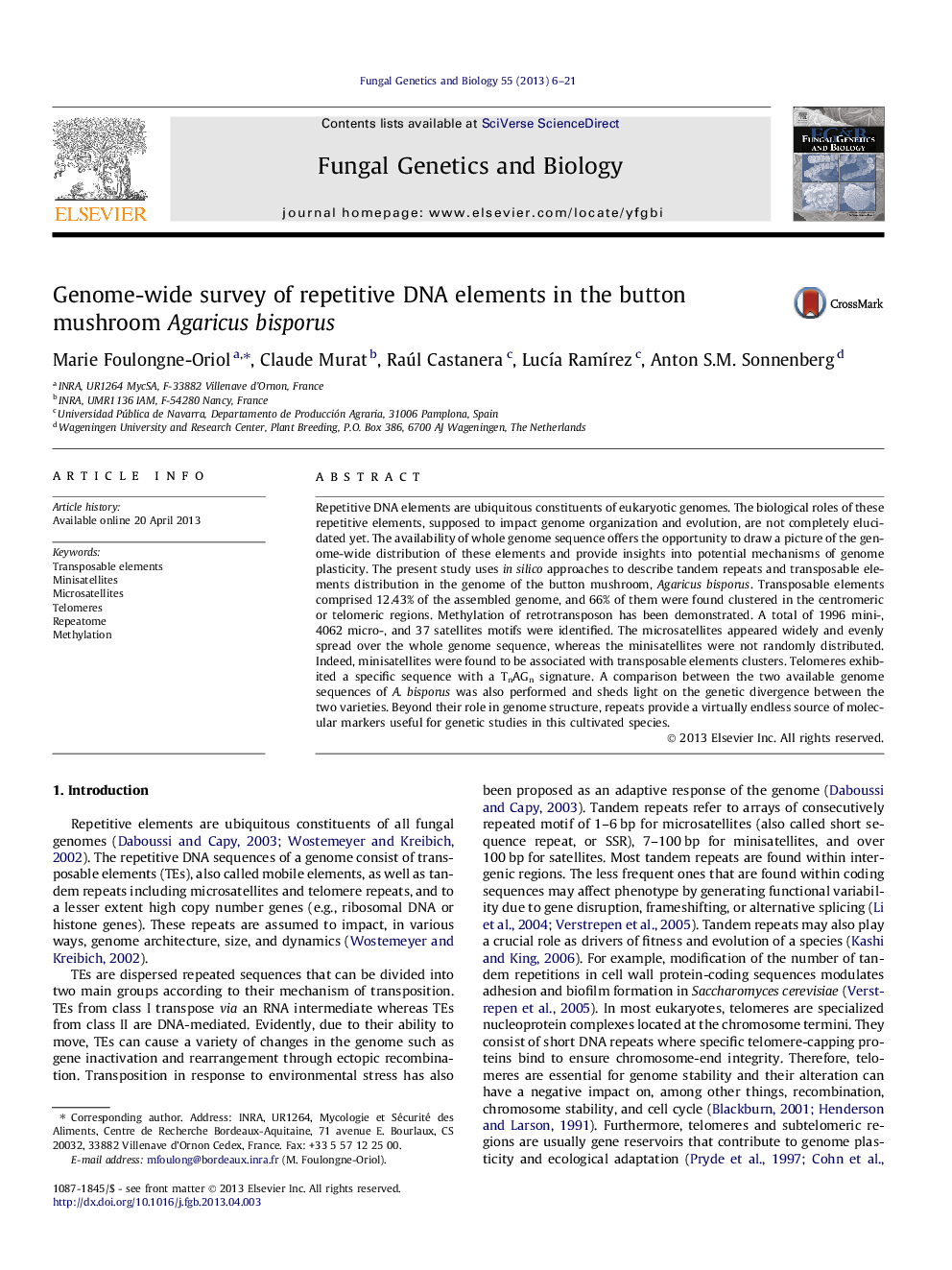| کد مقاله | کد نشریه | سال انتشار | مقاله انگلیسی | نسخه تمام متن |
|---|---|---|---|---|
| 2180834 | 1550035 | 2013 | 16 صفحه PDF | دانلود رایگان |

• Based on complementary in silico approaches on the latest version assembly.
• A. bisporus exhibit a specific signature of repeats.
• Microsatellites are evenly spread whereas transposable elements are clustered.
• Some retrotransposons are methylated.
• Comparison of repeats between the var. bisporus and var. burnettii genome sequences.
Repetitive DNA elements are ubiquitous constituents of eukaryotic genomes. The biological roles of these repetitive elements, supposed to impact genome organization and evolution, are not completely elucidated yet. The availability of whole genome sequence offers the opportunity to draw a picture of the genome-wide distribution of these elements and provide insights into potential mechanisms of genome plasticity. The present study uses in silico approaches to describe tandem repeats and transposable elements distribution in the genome of the button mushroom, Agaricus bisporus. Transposable elements comprised 12.43% of the assembled genome, and 66% of them were found clustered in the centromeric or telomeric regions. Methylation of retrotransposon has been demonstrated. A total of 1996 mini-, 4062 micro-, and 37 satellites motifs were identified. The microsatellites appeared widely and evenly spread over the whole genome sequence, whereas the minisatellites were not randomly distributed. Indeed, minisatellites were found to be associated with transposable elements clusters. Telomeres exhibited a specific sequence with a TnAGn signature. A comparison between the two available genome sequences of A. bisporus was also performed and sheds light on the genetic divergence between the two varieties. Beyond their role in genome structure, repeats provide a virtually endless source of molecular markers useful for genetic studies in this cultivated species.
Figure optionsDownload high-quality image (183 K)Download as PowerPoint slide
Journal: Fungal Genetics and Biology - Volume 55, June 2013, Pages 6–21